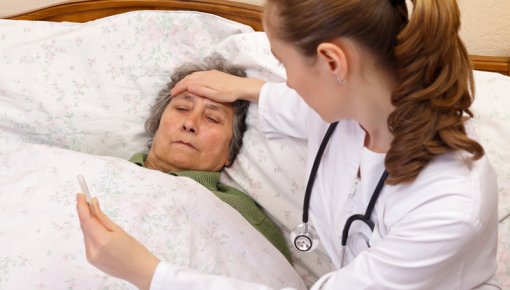Pneumonia in older people: What you should know

When older people develop pneumonia, they may not have the typical symptoms such as a fever or a cough with phlegm. This can make it difficult to diagnose. Older people often need more intensive treatment than younger adults do, and they have a higher risk of complications like trouble breathing, too little oxygen in their blood, heart failure or sepsis.
Chronic diseases – like lung disease or heart disease – are more common in older age. Because of this, older people are more likely to develop pneumonia than younger people are. It can also take a different course or be more severe in older age.
